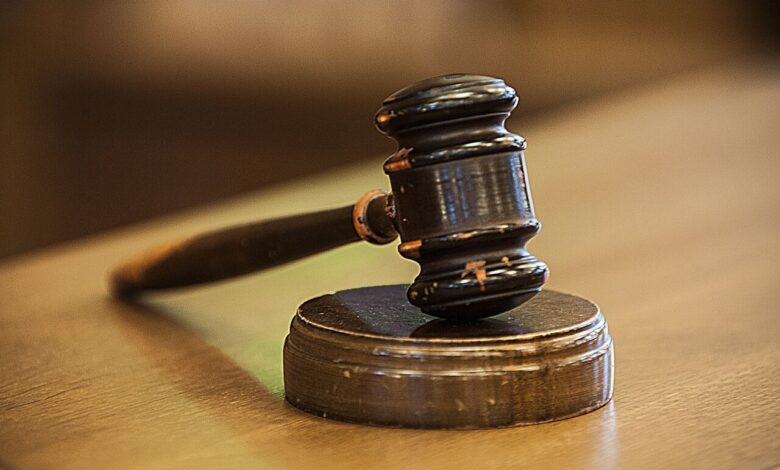Causes, consequences of failing justice system in Nigeria

The justice system is often regarded as the backbone of a democratic society. It is responsible for maintaining law and order, protecting individual rights, and providing mechanisms for dispute resolution.
However, Nigeria’s justice system is increasingly viewed as failing, characterized by inefficiencies, corruption, lack of access, and inadequate resources. This article explores the multifaceted challenges that contribute to the deterioration of Nigeria’s justice system, analyzes the consequences of these failings, and suggests potential reforms for restoring public faith in the legal framework.
Historical Context
To understand the current state of Nigeria’s justice system, it is essential to consider its historical context. Nigeria’s legal framework has evolved through various phases, including colonial rule, military dictatorship, and the subsequent return to democracy in 1999. Each phase has left an imprint on the justice system, often prioritizing the interests of those in power over the equitable application of justice to the populace. While the 1999 Constitution guarantees the right to a fair trial and due process, the legal system remains burdened by historical legacies of corruption and inefficiency.
Challenges of the Justice System: Corruption
Corruption permeates every level of Nigeria’s justice system, eroding public trust and compromising the integrity of legal proceedings. Numerous studies and reports have highlighted the prevalence of bribery and graft within courts, police, and correctional facilities. Judicial officers and law enforcement personnel sometimes prioritize personal gain over their duties, leading to a system where justice is often contingent upon one’s financial resources rather than the merits of a case. This corruption not only hampers fair and impartial hearings but also contributes to a growing sense of disillusionment among citizens who feel that the justice system is inaccessible to them.
The prevalence of corruption can delay justice. Delays in court proceedings due to bribery and other corrupt practices can lead to prolonged trials and wrongful convictions or acquittals.Victims of injustice often lose faith in the legal system, which can lead to social unrest and a lack of legitimacy for legal institutions.
The independence of the judiciary can be compromised by political pressures and interference, where judges may be coerced into making decisions that align with the interests of those in power.
Inefficiency and Institutional Weakness
The Nigerian justice system is notorious for its inefficiencies, resulting from a combination of bureaucratic hurdles, lack of resources, and inadequate infrastructure. Caseloads in courts are often overwhelming, causing significant delays in the adjudication of cases. It is not uncommon for a single case to linger for years, depriving individuals of timely justice. These inefficiencies are exacerbated by outdated laws and procedures that have not evolved to meet contemporary societal needs. The lack of technological integration further complicates matters, with many records maintained in physical form, leading to lost files and mismanagement.
Addressing institutional weaknesses in Nigeria requires comprehensive reforms that promote transparency, accountability, and efficiency. Efforts must be made to strengthen legal and regulatory frameworks, enhance capacity-building through education and training, and foster a culture of accountability within all levels of government. Engaging civil society, harnessing technology, and promoting grassroots initiatives can also play a crucial role in institutional strengthening. Ultimately, a commitment to good governance and the rule of law is essential for fostering sustainable development in Nigeria.
Inaccessibility
Access to justice is a fundamental human right; however, for many Nigerians, this remains an elusive goal. High legal fees, inadequate legal representation, and a lack of legal awareness among the population prevent marginalized communities from seeking justice. The concept of pro bono legal services is not well established, and many citizens are unaware of their rights or the legal resources available to them. As a result, individuals from low-income backgrounds are disproportionately affected by the failings of the justice system, perpetuating cycles of injustice and inequality.
Inhumane Detention Conditions
Nigeria’s correctional facilities are often overcrowded and poorly maintained, violating international standards for humane treatment. Many detainees await trial in conditions that can only be described as inhumane, leading to severe human rights abuses. The lengthy pre-trial detention that many experience reflects the systemic failings of the justice system in safeguarding individual rights. This situation is compounded by a lack of rehabilitation programs, meaning that correctional facilities often perpetuate criminal behaviour instead of facilitating reintegration into society.
Vulnerable populations, including women, children, and those with mental health issues, often face even harsher conditions. Women may be subjected to gender-based violence or exploitation within detention facilities, and children may be detained with adult prisoners.
Detainees with mental health issues often receive inadequate care and are sometimes subjected to punitive measures instead of medical treatment. There is often a lack of accountability for human rights abuses in detention practices. Complaints regarding treatment in prisons or police detention facilities may go uninvestigated or unaddressed.
Courts may not provide effective remedies for victims, allowing abuses to continue with little consequence for perpetrators. Human rights organizations, including Amnesty International and Human Rights Watch, have consistently called for reforms to address the issues of inhuman detention practices in Nigeria. Such reforms may include improving prison conditions, providing adequate legal representation, and ensuring that laws against torture and abuse are strictly enforced.
Addressing inhuman detention practices in Nigeria requires concerted efforts from the government, civil society, and the international community. It involves not only improving living conditions and treatment of detainees but also ensuring the rule of law and access to justice for all citizens. Comprehensive reforms, systematic changes in law enforcement practices, and strict adherence to human rights principles are crucial for creating a more humane and fair detention system in Nigeria.
Violence and Insecurity
The rising tide of violence, particularly from armed groups, crime syndicates, and communal conflicts, has placed additional strain on the justice system. Security agencies often find themselves overwhelmed, and the inability to protect citizens leads to further erosion of trust in legal institutions. In many cases, victims of violent crimes feel powerless to seek justice, fearing retribution or lack of accountability for perpetrators. This culture of impunity undermines the rule of law and creates an environment where citizens are less likely to engage with formal legal processes.
Consequences of a Failing Justice System
The consequences of Nigeria’s failing justice system are far-reaching, affecting not only individuals but also the broader societal fabric.
Erosion of Public Trust
Widespread corruption and inefficiency have led to a significant erosion of public trust in legal institutions. Citizens increasingly view the justice system as biased and ineffective, leading to a reluctance to seek legal remedies for grievances. This disillusionment contributes to a culture of impunity, where individuals may resort to extrajudicial means to settle disputes, further undermining the rule of law.
Social Inequality and Disempowerment
The inability of the justice system to provide equitable access to justice perpetuates social inequality. Marginalized communities, particularly those in rural areas or from lower socioeconomic backgrounds, are disproportionately affected. The resulting disempowerment has a cascading effect, as individuals who cannot seek justice for rights violations become trapped in cycles of poverty and marginalization.
Hindered Economic Development
A reliable justice system is a cornerstone for sustainable economic development. Investors typically seek environments where the rule of law is upheld, and contracts are enforced. Corruption and inefficiencies deter foreign investment and can lead to a lack of confidence in the domestic legal framework. Consequently, Nigeria’s economic potential is significantly hampered by the failings of its justice system.
Potential Reforms
Addressing the challenges within Nigeria’s justice system requires a multifaceted reform strategy that engages various stakeholders.
Strengthening Institutions
Improving the integrity of the judiciary and law enforcement agencies is paramount. This can be achieved through rigorous training, better remuneration to reduce incentives for corruption, and the establishment of independent oversight bodies to monitor and investigate judicial conduct. Increasing transparency through the publication of court decisions and financial transactions can also enhance accountability.
Access to Justice Initiatives
Expanding access to legal services is critical. The establishment of more legal aid clinics, alongside awareness campaigns about legal rights, can empower citizens to seek justice. Collaboration with local NGOs and community organisations can help bridge the gap between legal services and those most in need.
Infrastructure and Technological Advancement
Investing in technological solutions such as case management systems, online filing, and data digitization-can reduce inefficiencies and help streamline court processes. Modernizing the legal framework to discard or amend outdated procedures will facilitate quicker adjudication of cases.
Human Rights Protection
Improving conditions in correctional facilities should be a priority, including the implementation of rehabilitation programs. Addressing human rights issues holistically requires collaboration with civil society organisations to monitor conditions and advocate for the rights of detainees.
Community Engagement
Encouraging community involvement in legal processes can foster a greater understanding of the law and build trust. Community courts or alternative dispute resolution mechanisms can serve as effective platforms for conflict resolution, particularly in rural areas where formal institutions may be less accessible.
Conclusion
Nigeria’s justice system is at a critical juncture, faced with numerous challenges that undermine its efficacy and credibility. Corruption, inefficiency, inaccessibility, and human rights abuses conspire to create an environment where justice remains out of reach for many citizens. Addressing these issues requires concerted efforts from both the government and civil society to reform institutions and processes. Without significant changes, the justice system risks further decline, which could exacerbate societal divisions and undermine the rule of law. By prioritizing justice system reform, Nigeria can work towards a more equitable and just society, re-establishing faith in the legal framework and promoting democracy and human rights for all citizens.






